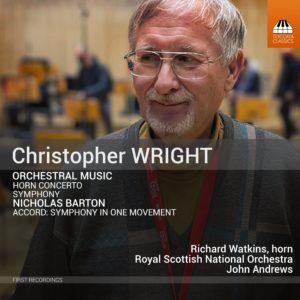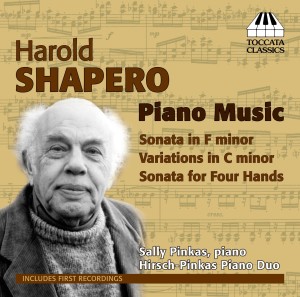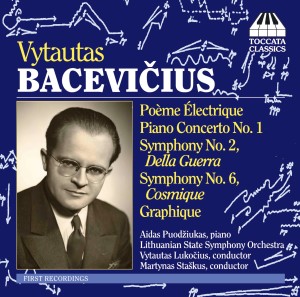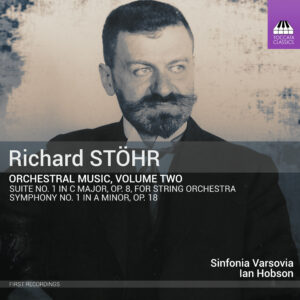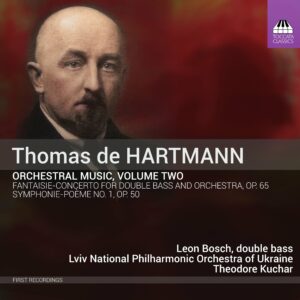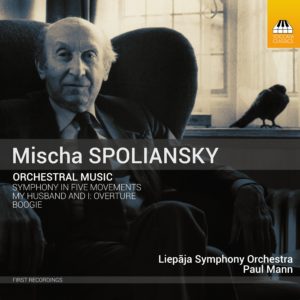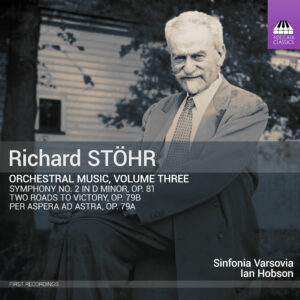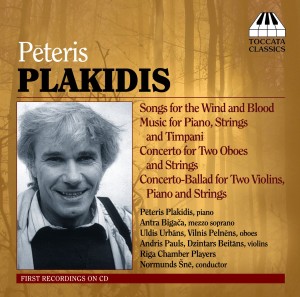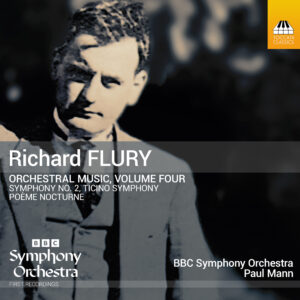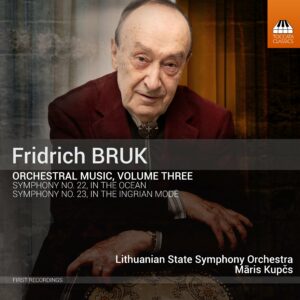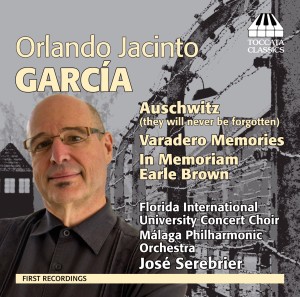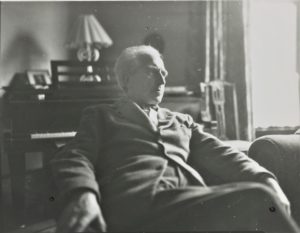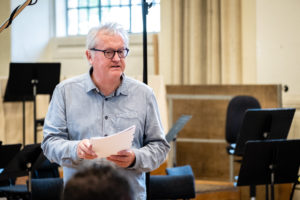Search Results for "The Black Alley Newty Ping" – Page 18
Showing results for black alley net ping
Christopher Wright/Nicholas Barton: Orchestral Music
This album brings together orchestral music by two English composers who are also good friends – and both born in East Anglia: Nicholas Barton in Norfolk in 1950 and Christopher Wright in Suffolk in 1954. Moreover, they share a similar musical language: largely tonal, if loosely so, rhythmically alert, transparently but dramatically scored and with a natural feeling for symphonic argument and growth, and a powerful sense of scale.
Richard Watkins, horn (Tracks 2–4)
Royal Scottish National Orchestra
John Andrews, conductor
Harold Shapero: Piano Music
Harold Shapero (1920-2013) reacted against the dominance of modernism in American musical life in the mid-twentieth-century by using a Neoclassical language with its roots in Beethoven and Schubert, initially animated by Stravinsky. These three early piano works — two of them receiving their first-ever recordings — reveal Shapero's superb craftsmanship and his ready wit, in music which embraces the past instead of rejecting it.
Sally Pinkas, piano
Evan Hirsch and Sally Pinkas, piano duo
Vytautas Bacevičius: Orchestral Music
The Lithuanian pianist and composer Vytautas Bacevičius (1905-70) is one of the undiscovered radicals of the twentieth century. The early works on this CD show him finding his voice, as in the First Piano Concerto, with its echoes of Scriabin, and the Poème électrique, cast in the 'machinist’ aesthetic in vogue in the 1920s and ’30s. The programmatic Second Symphony depicts the onset of the Second World War which Bacevičius, desperately anxious about his family in Poland and Lithuania, followed from his exile in the New World. And the late Sixth Symphony and Graphique, which show a kaleidoscopic, pointilliste use of orchestral colour, boiling with violent energy, point to an entirely new musical language.
Aidas Puodžiukas, piano
Lithuanian State Symphony Orchestra, orchestra
Vytautas Lukočius, conductor
Martynas Staškus, conductor
Richard Stöhr: Orchestral Music, Volume Two
This second volume of the orchestral music of the Austro- American composer Richard Stöhr (1874–1967) reveals further marvels: the first of his two suites for string orchestra encases a moving slow movement between a charming prelude and an elegant fugue; and the four imposing spans of the expansive First Symphony offer grandeur and heartfelt profundity – as well as irresistibly catchy tunes that will set the foot tapping. Stöhr writes in a musical language somewhere between Bruckner, Mahler and his exact Viennese contemporary Franz Schmidt – but it is a voice increasingly readily recognised as his own.
Sinfonia Varsovia
Piotr Wilczyński, organ
Ian Hobson
Thomas de Hartmann: Orchestral Music, Volume Two
The music of the Ukrainian-born Thomas de Hartmann (1884–1956) is only now beginning to be rediscovered, almost seven decades after his death. The two works receiving their first recordings here reveal a major late-Romantic voice, downstream from Tchaikovsky, a student of Arensky and Taneyev, contemporary of Rachmaninov, and alert to the discoveries of Stravinsky and Prokofiev. The Symphonie-Poème No. 1 – a musical cousin of Rachmaninov’s Second Symphony – occupies a vast canvas and requires a correspondingly huge orchestra, generating a monumental sense of scale from essentially balletic material. The lighter Fantaisie-Concerto for double bass and orchestra moves from tangy dissonance via a tuneful slow movement to a perky, folk-inspired finale.
Leon Bosch, double bass (Tracks 4–7)
Lviv National Philharmonic Orchestra of Ukraine
Theodore Kuchar, conductor
Mischa Spoliansky: Orchestral Music
The Russian-born Mischa Spoliansky (1898—1985) became one of the major names in cabaret in 1920s Berlin and then, as a refugee from Nazi Germany, in London, he became one of the best-known composers of film scores. He also wrote a handful of orchestral works, which have remained unknown until now. His Boogie is a witty, tongue-in-cheek piece of orchestral jazz, and the Overture to My Husband and I, one of his stage shows, has a Mozartian sparkle and wit. But it is his only Symphony, an epic statement composed over a period of nearly three decades, that constitutes his real achievement as an orchestral composer – the fourth of its five movements apparently offering Spoliansky’s own musical commentary on the Holocaust.
Liepāja Symphony Orchestra
Paul Mann, conductor
Richard Stöhr: Orchestral Music, Volume Three
Like so many important Austrian musicians forced into American exile by the Nazis, Richard Stöhr (1874–1967) suddenly found himself cast from celebrity into obscurity, The optimism and energy, even defiance, of these three works from 1942 suggest that he took it in his stride, with his musical language retaining its Viennese accent in an individual amalgam of Bruckner, Mahler, Schmidt and Korngold. Indeed, the echoes of Mahler in Stöhr’s Second Symphony may be a deliberate homage if, as seems possible, this score is a revision of a now-lost work first composed shortly after Mahler’s death.
Sinfonia Varsovia
Ian Hobson, conductor
Pēteris Plakidis: Music for String Orchestra
The music of Pēteris Plakidis (1947-2017) is rooted in the melodic character of Latvian folk-music, which imbues all his works with a remarkable strength and beauty. Renaissance and Baroque polyphony and forms, such as fugue, chaconne, canon and variation, provide the strong internal organisation that binds together a remarkable and moving synthesis of disparate elements. Although Plakidis shares some points of contact with the 'Holy Mystics’ among other Baltic composers, such as Arvo Pärt and Pēteris Vasks, his own music evokes the meditative power of nature and the distinct character of his Latvian roots. From these four works a unique voice emerges, a musical personality full of harmonic warmth, rhythmic excitement and dramatic lyricism.
Pēteris Plakidis, piano
Antra Bigača, mezzo soprano
Uldis Urbāns, oboe
Vilnis Pelnēns, oboe
Andris Pauls, violin
Dzintars Beitāns, violin
Riga Chamber Players, chamber orchestra
Normunds Šnē, conductor
Richard Flury: Orchestral Music, Volume Four
The Second Symphony of the Swiss composer Richard Flury (1896–1967) is deeply bound up with his personal life. In 1932 his first marriage broke up, and his wife and four children left Solothurn in the north to settle in Ticino, in the south. Through visits to his family in Lugano Flury grew to know the area well, so much so that he decided to celebrate their new surroundings in his Second Symphony, the movements of which are based on the carillon of the Flury family’s local church and three Ticino folksongs. Structurally, the work belongs to the Brucknerian tradition, but it also has points of contact with the orchestral naturepainting of Flury’s good friend Joseph Marx. The landscape of the Poème nocturne is an interior one: it is an expansive dreamfantasy of occasionally violent passions, a worthy cousin of Richard Strauss’ tonepoems.
BBC Symphony Orchestra
Paul Mann, conductor
Fridrich Bruk: Orchestral Music, Volume Three
This third instalment of the recent symphonic output of Fridrich Bruk (born in Ukraine in 1937 but a Finnish resident since 1974) brings two works of astonishing vitality for a composer in his eighties. Both of them have social undercurrents: Symphony No. 22 is driven by ecological concerns about the pollution of the world’s oceans, and No. 23 takes its material from folk-melodies of the Ingrians, a vanishing ethnic group on the Finnish- Russian border. The orchestral writing in both pieces is passionate and wildly inventive, a kaleidoscope of colour and counterpoint, sitting somewhere between Villa-Lobos and Pettersson in its profligate abundance.
Lithuanian State Symphony Orchestra
Māris Kupčs, conductor
Orlando Jacinto García: Music for Chorus and Orchestra
Born in Havana in 1954, the Miami-based Orlando Jacinto García studied with Morton Feldman and has inherited some of Feldman's concerns: his music likewise evolves gradually over slow-moving spans of time, unfolding like the leaves of a plant, generating colours as with the gentle turning of a kaleidoscope. The elegiac Auschwitz (they will never be forgotten), a meditation for chorus and orchestra, captures something of the infinite sorrow evoked by the memory of such institutionalised cruelty. Varadero Memories is an abstract recollection of a Cuban beach where as a child he spent time with his grandparents. And the hypnotic In Memoriam Earle Brown pays elegant, understated tribute to a seminal figure in American modernism.
Florida International University Concert Choir, choir
Mark Aliapoulios, conductor
Málaga Philharmonic Orchestra, orchestra
José Serebrier, conductor
Recording Francis George Scott’s Piano Music
Two years after I began to record it, the first-ever album of Francis George Scott’s piano music is now available. The programme as it appears…
Announcing Toccata Next
Toccata Classics was born out of a desire to present the music of unjustly neglected composers, and to give them a chance to present themselves…
Toccata e due CD: Rediscovering Early Martinů – Part II
The publication of Martinů and the Symphony in 2010 brought a few unexpected opportunities my way. Even before the book appeared, I had taken part…
Holiday Collection
Register for the Toccata Newsletter and get a download of our Season’s Greetings Compilation for FREE! On the Compilation Judith Bingham: Christmas Past, Christmas Present…
Elcock: From One Fifth To Another
Steve Elcock has mastered the fast introduction. A device favoured by Berlioz gets a new lease of life: both Elcock’s Third (2005–10) and this new…
Stay In the Know
JOIN THE TOCCATA NEWSLETTER
"*" indicates required fields
By visiting our site, you agree to our privacy policy regarding cookies, tracking statistics, etc.
